An Interview with Isaac Cole: Putting Traditional Country Music (and Gretsch Ranchers) Center Stage
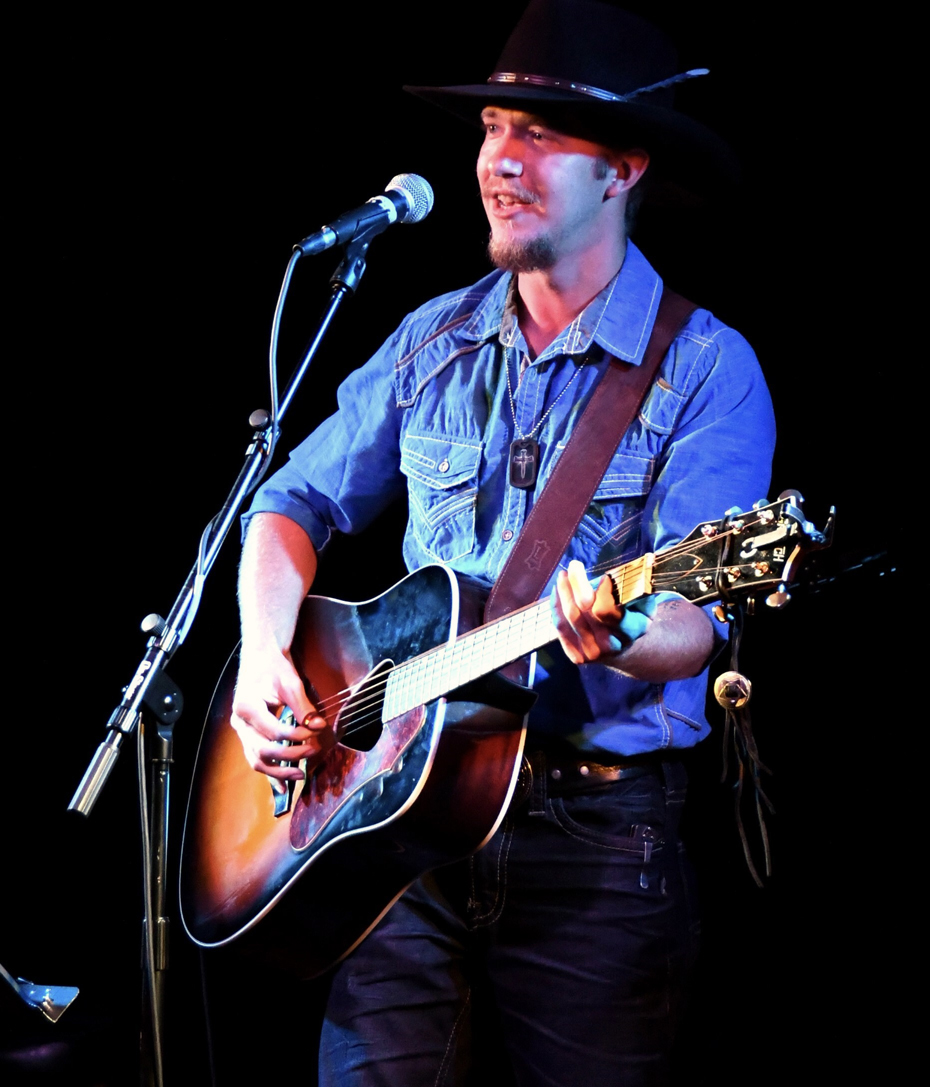
Isaac performing at his album release party for “The Fifth.”
I’m chasin’ that neon rainbow, I’m livin’ that honky tonk dream,
‘Cause all I ever wanted, is to pick this guitar and sing,
Just tryin’ to be somebody, just wanna be heard and seen,
Chasin’ that neon rainbow, Livin’ that honky tonk dream.
Country music superstar, Alan Jackson, had a huge hit in 1990 with “Chasin’ That Neon Rainbow,” a song about a musician sharing his lifelong dream of one day making it as a country music artist. In reviewing the song for Country Universe, Kevin John Coyne gave it an A grade and said, “The song is sung with a humble innocence, exudes boundless gratefulness and optimism for a budding career.”
One can’t help but draw the comparisons of that song’s message (as well as the humbleness, gratefulness, and optimism traits of the song’s narrator) to Isaac Cole, an up-and-coming country artist trying to preserve the more traditional style of country music from the 90s.
Isaac is only 22, but the multi-instrumentalist singer/songwriter has already accumulated an impressive list of music accomplishments. He released his first album, Country Boy, at the age of 12, became a Gretsch endorsed artist at 14, reached the showcase round on American Idol at the age of 15, and backed up Dolly Parton onstage when he was 19.
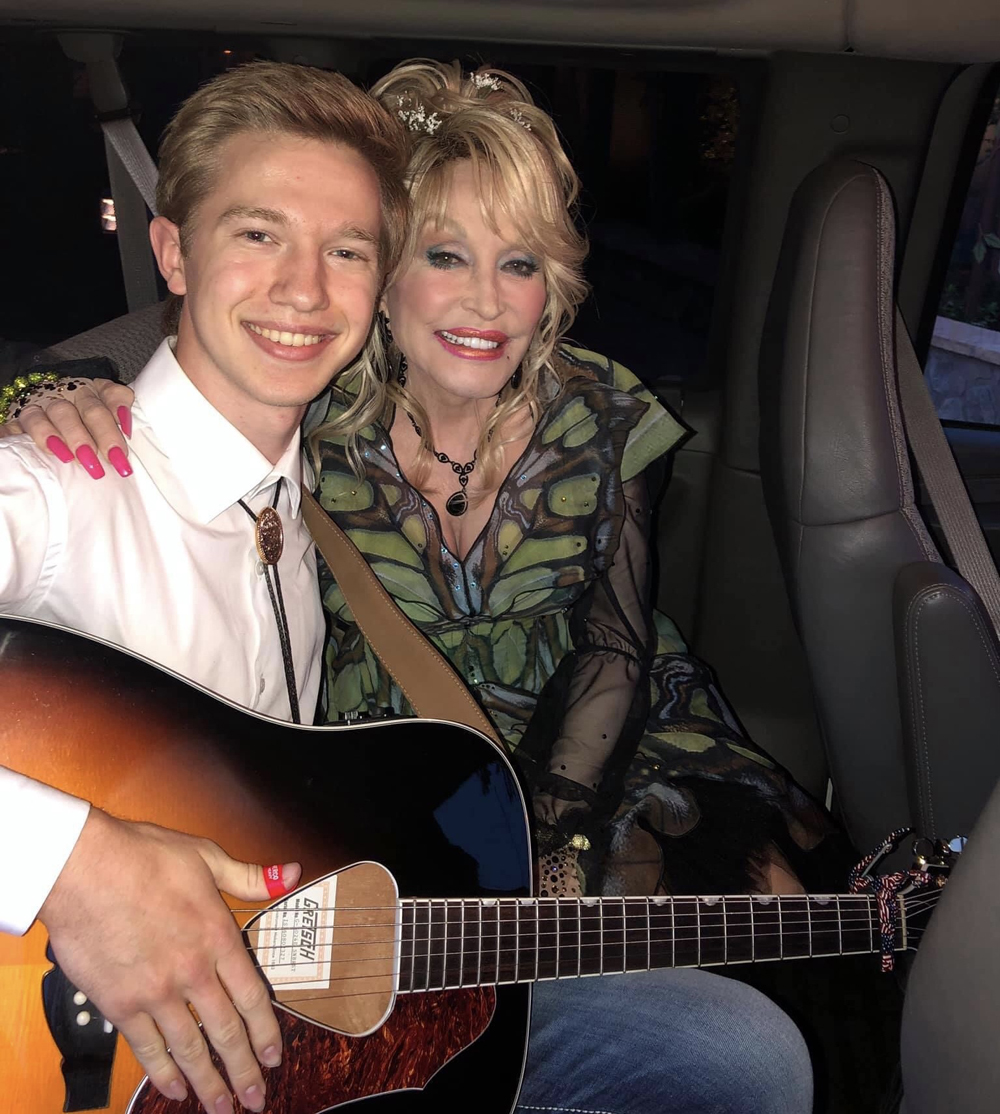 Born and raised in the small town of Emlenton, Pennsylvania (population of only about 600) on his family’s 140-acre farm, Isaac fell in love with country music at a very young age. “There are certain songs that if I hear them on the radio today, it brings back memories of me as a toddler riding in my dad’s old red Chevy pickup,” says Isaac. “We’d always ride in that pickup going back and forth from home to T-Ball practice, or whatever, and listen to the Froggy 95 Country radio station. I literally grew up on Phil Vassar, Dwight Yoakam, Vince Gill, Alan Jackson, George Strait, that kind of country music.”
Born and raised in the small town of Emlenton, Pennsylvania (population of only about 600) on his family’s 140-acre farm, Isaac fell in love with country music at a very young age. “There are certain songs that if I hear them on the radio today, it brings back memories of me as a toddler riding in my dad’s old red Chevy pickup,” says Isaac. “We’d always ride in that pickup going back and forth from home to T-Ball practice, or whatever, and listen to the Froggy 95 Country radio station. I literally grew up on Phil Vassar, Dwight Yoakam, Vince Gill, Alan Jackson, George Strait, that kind of country music.”
Now living in Nashville, the mega center of country music, Isaac has been working tirelessly to get exposure and make a name for himself in the ultra-competitive local country music scene. His catchy, throwback 90s era approach to country music is getting noticed and his fifth album, appropriately titled, The Fifth, is generating positive reviews.
Today’s Country Magazine recently had this to say about Isaac’s latest single “Hypnotized:” “Isaac Cole’s voice really can’t fit anything other than country, but that’s exactly what adds the necessary throwback flavor to this song. Though there are just enough modern tweaks to the overall sound of “Hypnotized” so that it never falls in the ‘out of touch’ realm, it’s very refreshing to get a vibey tune that pulls away from the current pop side of country and could instead be strongly comparable to something that would’ve been released during the 90s era – which many will argue is the strongest era of the modern styles.”
In talking to Isaac, you can’t help but be impressed by how down-to-earth he is, his humble, grateful approach to life, and the optimism he has for making it in the country music business. He’s just one of those musicians that you pull for and hope will have an impact on the country music scene. As Isaac said in a recent interview, “Music has always been a natural passion of mine; I really don’t have a backup plan. I’m putting all my chips on music.”
We recently caught up with Isaac over the phone from his home in the Nashville area to chat about his new album, how he’s become a songwriter despite being dyslexic, why he plays a Gretsch Rancher Dreadnaught, and the sage career advice he got years ago from Charlie Daniels
How do you like living in Music City?
I tell ya, I absolutely love Nashville. I’ve never really been much of a city guy because I grew up on a family farm in a really, really small town in Northwestern Pennsylvania, but I really love Nashville. I don’t know if I’d like living inside the city limits of Nashville, but I’ve been blessed to find a place in the area with a small town feel that’s only about a half hour from Nashville. So, to me, it’s the best of both worlds.
You have a true passion for 90s-era country music. Why does you love it so much?
The songs from that era tell a story. With almost every song, there’s some sort of a story, there’s some sort of a message, they’re very conversational, and a lot of them just portray real life. That’s what I love about that music. It’s so relatable.
Is today’s country music as relatable?
Some of it is, but songs you hear today about how big your truck is or about how much beer you can drink is fun in moderation, but after a while, I want to hear about life. That’s what I’m trying to give people back, songs about life. To me, country music is about the people. If you only use one quote from me, that’s it right there: ‘Country music is about the people.’
A Gretsch Rancher isn’t a typical guitar for a Country artist to play. What made you choose it?
Because it plays so good, it really does, and it sounds fantastic. I just love my Tobacco Burst Rancher Dreadnaught. The way it sounds acoustically and especially the way it sounds plugged in. It comes stock with a Fishman Sonicore pickup and an Isys preamp system. I have played countless Writers Rounds in Nashville and I cannot count on my hands and my feet how many sound technicians come up to me after the set and ask me about my guitar and why it sounds so good. ‘What kind of guitar is that? What kind of pickups are you using? That thing sounds incredible.’ I say, it’s a stock Gretsch, man, this is how it comes, and they are just blown away.
And you play it for solo gigs as well as band gigs?
I do because it has such a large sound. And what’s important to me is how I can adjust the EQ. I can bring out the bass more if I’m just playing solo or I can turn up the treble if I’m playing with a band so I can poke through a little bit more. You’ve got so much wide range of sound you can bring out in a Rancher, it’s just the perfect guitar for me.
Besides your Rancher Dreadnaught, what other Gretsches do you own and play?
Well, that’s a long, long list. The first Gretsch I ever got was a White Falcon with the center block. Then I got one of those Louisiana swamp-sounding resonators, a dobro that I’ve played on a few demo tracks, a 12-string White Falcon Rancher that is just outstandingly beautiful, a smaller Jim Dandy, and a most unique one, a Rancher Dreadnaught Acoustic/Electric with a Bigsby whammy bar. It is such a quirky guitar. When I saw it, I said I have to have it and I love it. I also have a Gretsch mandolin and my current favorite, a two-tone Harbor Blue Brian Setzer Hot Rod model with my name inlaid into the neck. It’s got an experimental Bigsby whammy bar called a B-Blender. It’s almost like a B-Bender, but you pull up on the whammy bar and it bends the B string. It’s super neat.
You were only 14 when you became a Gretsch Endorsed Artist. How did that happen?
A longtime guitar picking friend of mine, Richard Kiser, encouraged me and my parents to attend the annual Chet Atkins Convention in Nashville. So, we did in 2014 when I was 14, and Richard took me to the Gretsch Booth and introduced me to Joe Carducci and it all started there. It came as a complete out-of-left-field surprise when Joe and Gretsch offered me an endorsement. Gretsch has just been the best to me, and I hope I can be with them for the rest of my musical career.
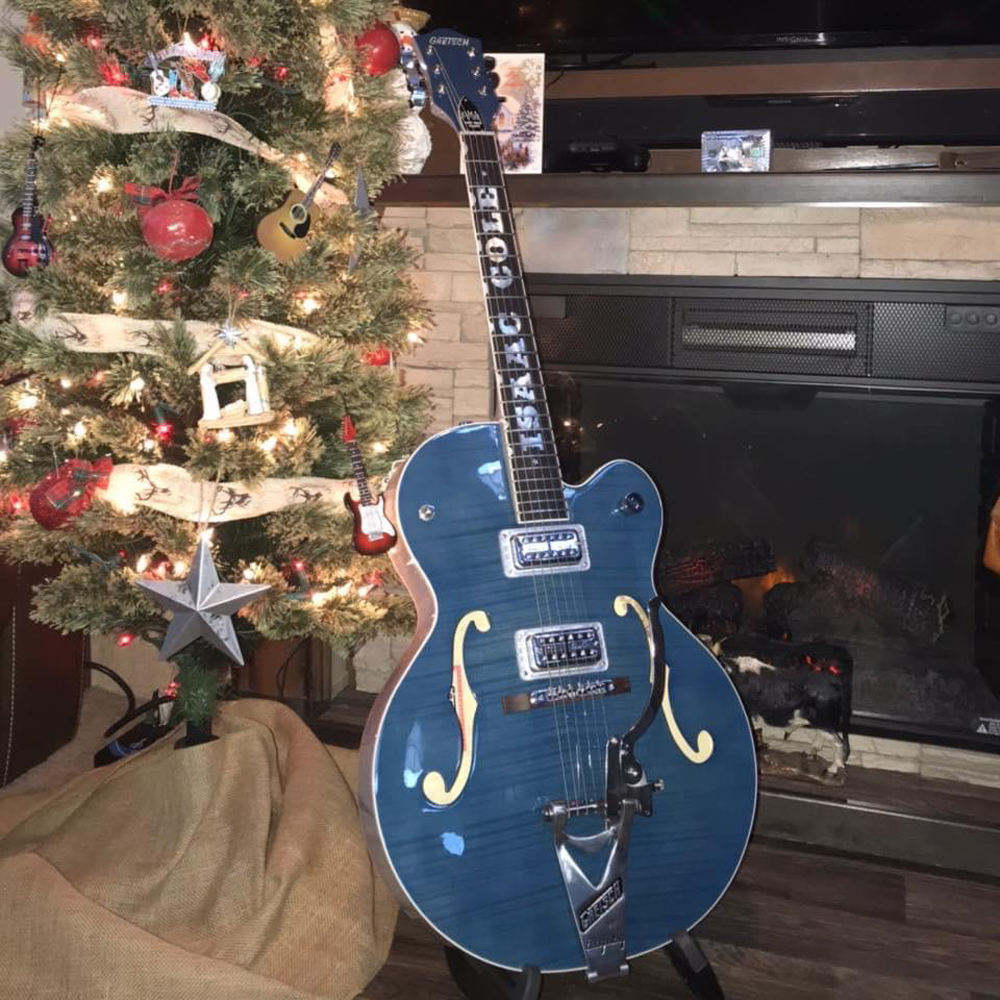
The Christmas gift that helped Isaac recover from a serious injury to his left hand.
I heard getting a Brian Setzer Hot Rod electric guitar helped you recover from a hand injury. Is that true?
Yes, it is. The Christmas I received that guitar from my parents and Gretsch, I was still recovering from a really serious injury that nearly took my life and my left hand. I couldn’t play the guitar quite right yet; it took a lot of rehabilitation just to get feeling and movement back into my hand. So, I played that Hot Rod guitar a lot. Its low action and neck were just what I needed at the time. I mean, you could blow on it and it would push down the string. So, it was a lot easier for me to stretch my hand and try to work it out on a neck that is so easy to play. At the time, it was just the inspiration and motivation I needed. That’s why that guitar is so special to me.
You just released your fifth album, titled The Fifth. What can you tell us about it?
It’s 100 percent original music and I like having that on my albums, especially at this stage in my career.
I like looking at it and thinking that me and my friends created it; this is our hard work going out to the people and it is hard work creating an album. For one, it’s expensive, and two, it takes a long time. You’ve got to write the songs, think about the different melodies, how you’re going to play it, a lot is on your shoulders, but it makes me happy when it’s finished, and you feel really good about all that hard work and what you and your friends created out of thin air.
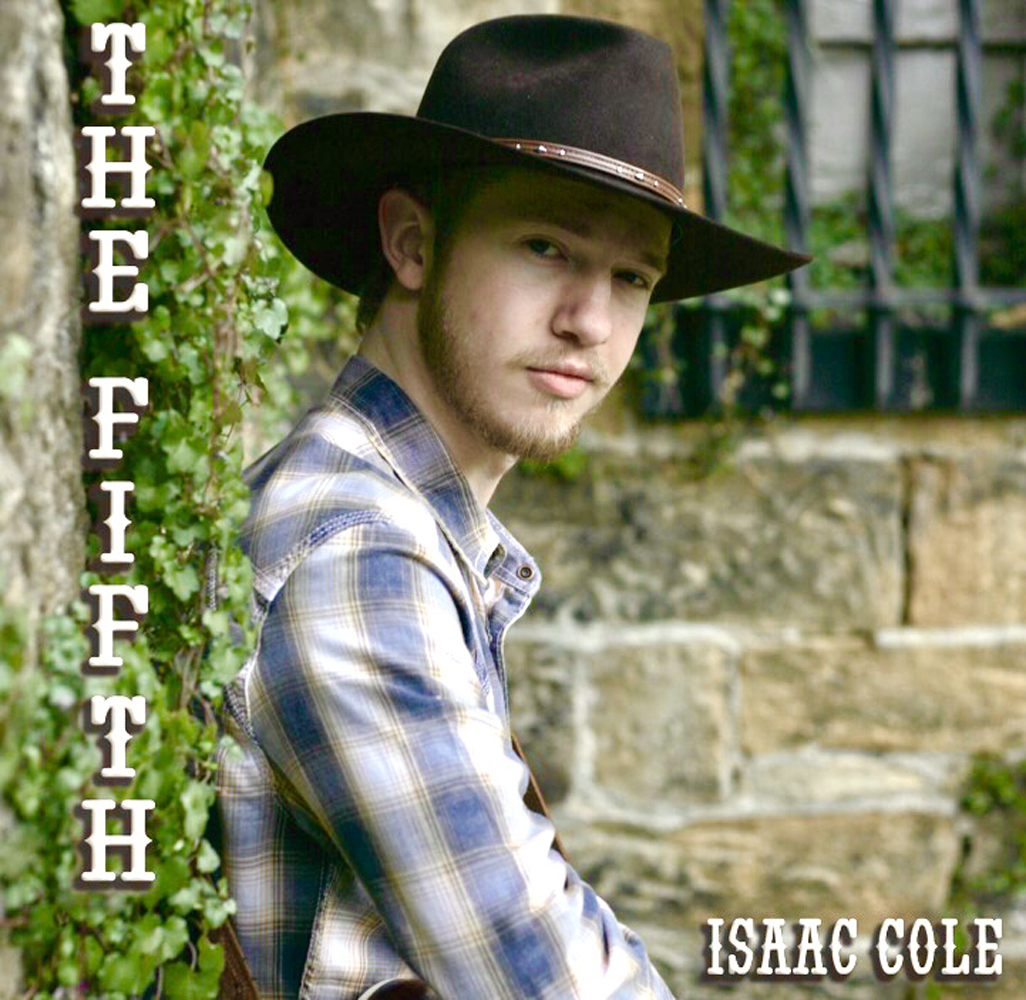
The cover of Isaac’s newest (and fifth) studio album appropriately titled “The Fifth.”
The Fifth features the first songs you’ve written entirely on your own. What was that like?
Hard. Songwriting doesn’t come naturally to me because I’m dyslexic. So, I’ve had to work pretty hard to hone my brain to songwriting and it’s been difficult at times, to be honest. It just takes me a little bit longer. Songwriting is a muscle that you really have to work out and for somebody who is dyslexic like me, the muscle was already a little weaker. I really had to work hard at it and, thankfully, I was able to be taught by a lot of really amazing songwriter friends of mine, like Corey Lee Barker and Tommy Brandt. They took me under their wing and showed me the ropes and I just can’t thank them enough.
What’s the best advice another musician has shared with you?
I met the late Charlie Daniels a few years ago backstage, and he took the time to tell me about his life when he was young like me and trying to break into the music business. He said it’s hard and it’s easy to get discouraged in this business. It’s also easy to go down some of the wrong paths. Charlie told me to work until I can’t work anymore, and then push through and work some more, and eventually, something will give. He also told me to stick close to God, hold the Good Lord’s hand, and let Him guard you and guard yourself from the pitfalls of this business, because there’s a lot of them.
What advice you would pass along to somebody hoping to be a professional musician?
I’d say it’s not for the faint of heart. It’s hard. And for people like me who work a day job, sometimes it can be difficult when you’ve got something coming up you’ve got to practice for and you’re dog tired from work. But you have to practice, because you don’t want to look bad on stage tomorrow. You’ve just got to get up and push yourself to do it even if that means staying up past your bedtime. It’s hard work. But whenever I get up there onstage and I’m playing, it’s all worth it. You have to work hard to make sure that every time you’re onstage, you are the very best that you can possibly be. You have to strive every time to be better than the last time you performed.
Enjoy Isaac’s recent single “Hypnotized,” the first song he wrote entirely on his own.
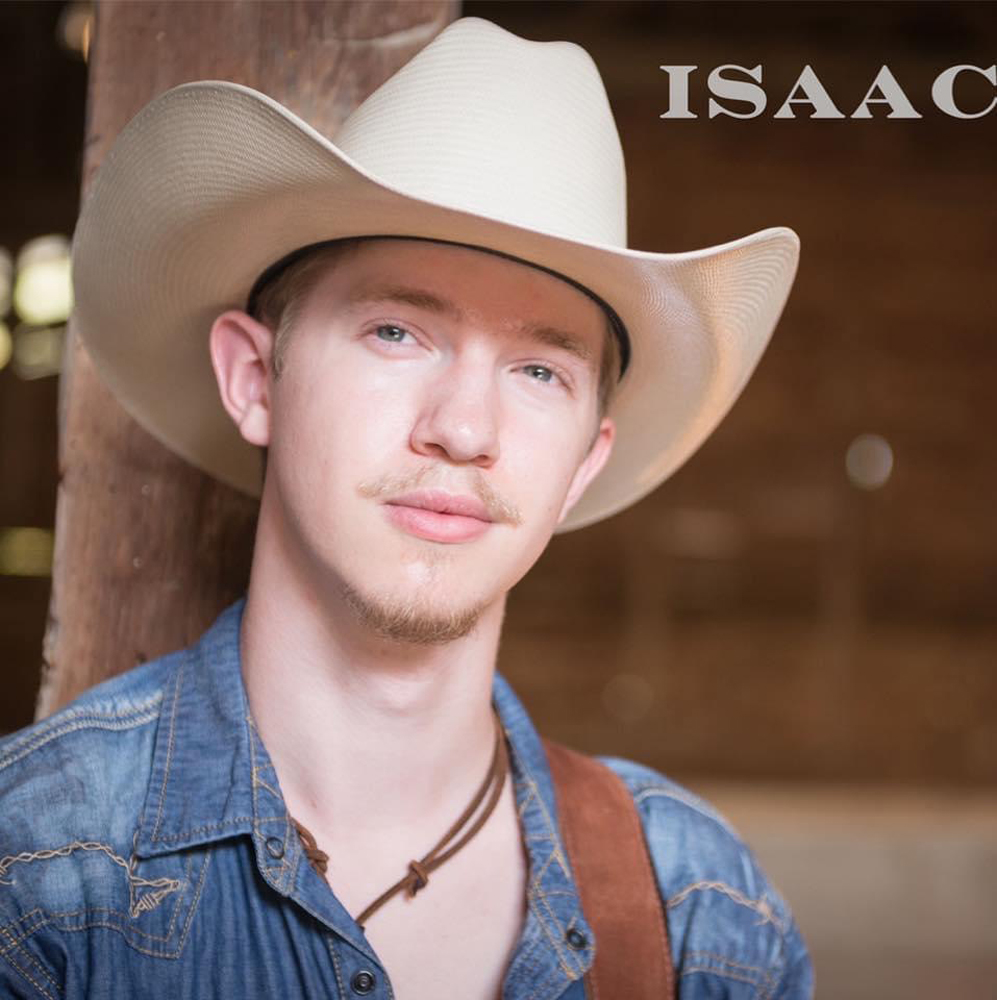



 Previous
Previous